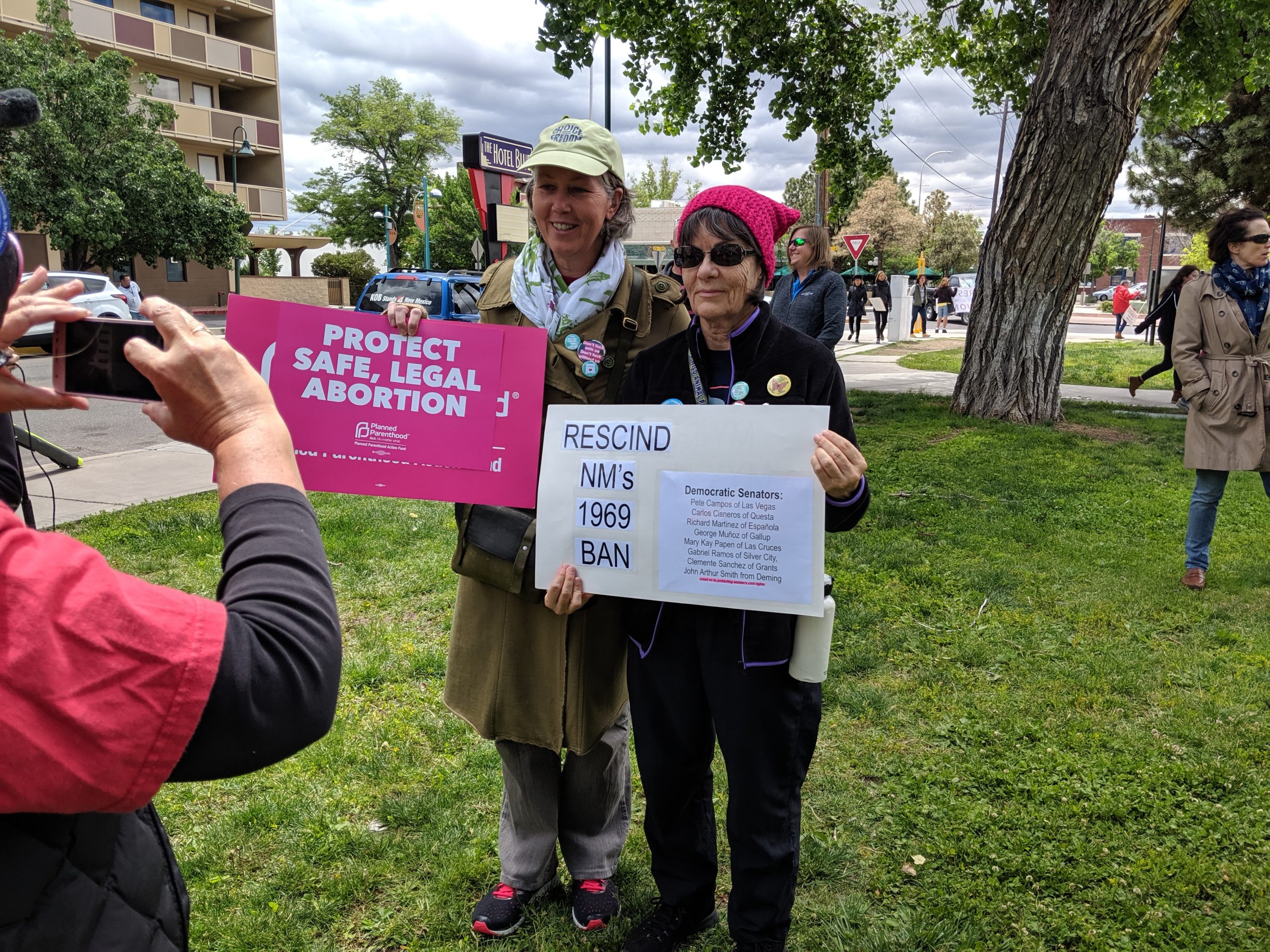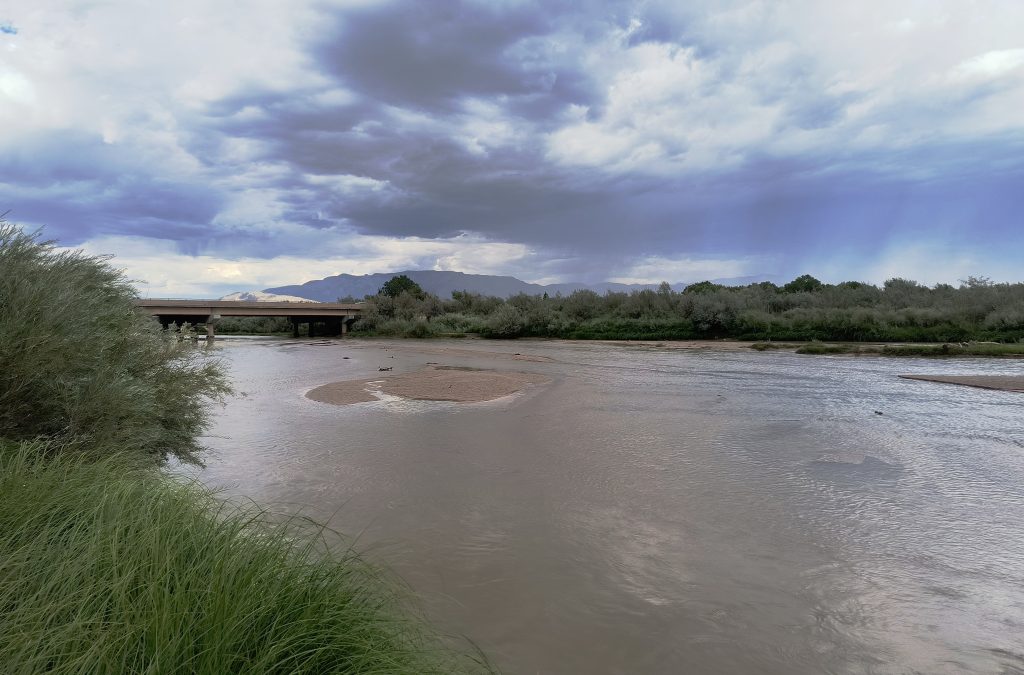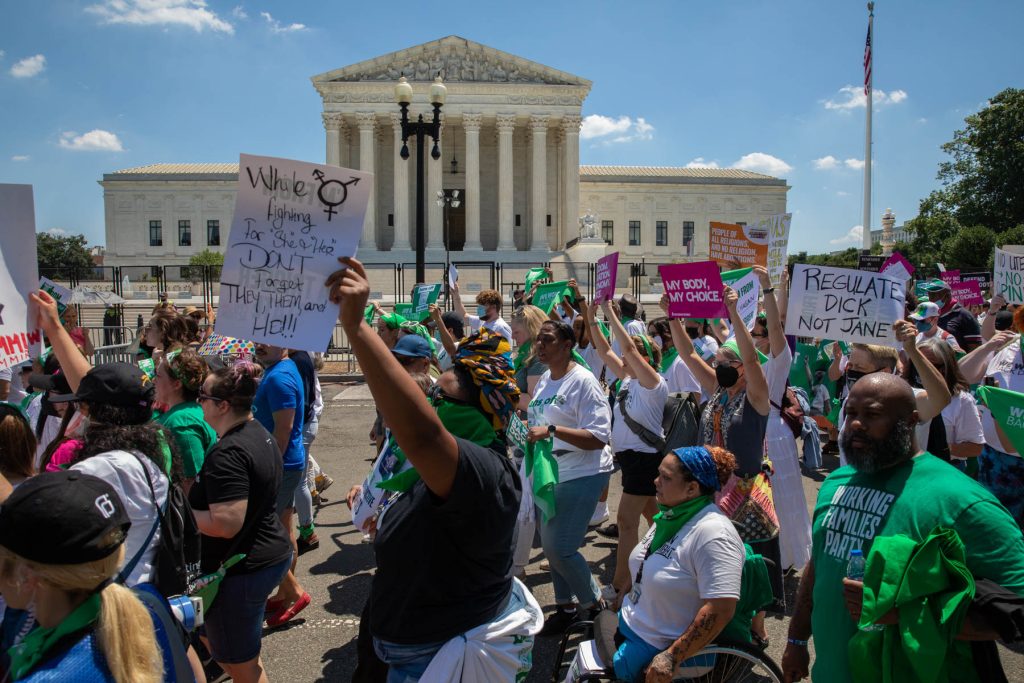A Maryland judge ruled last week that an abortion provider can deliver the abortion medication, mifepristone, to patients seeking abortion care through telehealth.
But the court injunction is “temporary in nature,” Wendy Basgall, Southwest Women’s Law Center staff attorney, said.
The American Civil Liberties Union sought a preliminary injunction, which the judge granted. But it only lasts while the U.S. Secretary of Health and Human Services’ declaration of a federal public health emergency is in effect.
Mifepristone is one of two medications that an abortion patient takes for a medical abortion. Even though the Federal Drug Administration (FDA) approved mifepristone for use 20 years ago, FDA regulations around it mean that women have to physically travel to a clinic to get the pill.
New York-based Gynuity Health Projects began what it calls a telabortion study in some states in 2016 to gather data to prove mifepristone’s safety to the FDA. New Mexico, through Planned Parenthood of the Rocky Mountains, became a part of that study group last year.
Related: TelAbortion could ease access woes
But with the onset of the pandemic in March, the American College of Obstetrics and Gynecologists (ACOG), the Council of University Chairs of Obstetrics and Gynecology (CUCOG) and others sued the FDA and U.S. Health and Human Services Department, arguing that during a pandemic, all women should be allowed to access the abortion medication through telehealth. Although ACOG and CUCOG wanted the injunction to last until there is a vaccine for COVID-19 or until the pandemic is over, the judge ruled against the plaintiff in that part of his decision, saying that that was too subjective and “overbroad.”
But the judge also ruled that his decision is not limited by geography. Ellie Rushforth, an attorney with the American Civil Liberties Union of New Mexico, said the judge’s ruling applies to New Mexico.
Nicole Martin, of Laguna Pueblo and cofounder and sex educator for Indigenous Women Rising, called the decision “a great step toward making abortion health care accessible.”
“It gives Indigenous people more agency over their decision making,” Martin said.
Martin said that making abortion possible through telehealth also eliminates nervousness and any trust issues a patient might have in visiting a clinic. It would also cut down on the “unwanted shaming and stigmatizing of abortion health,” by anti-abortion protestors who wait outside of clinics.
Indigenous Women Rising offer funds and other support to Native patients seeking an abortion. Martin said the grassroots group has received more callers during the pandemic.
“We actually started receiving more inquiries from people in the Plains area in the North and South Dakotas,” Martin said.
She said the restrictions put in place due to the pandemic have created additional transportation barriers for some Native patients.
But Rushforth cautioned that any abortion provider in New Mexico should seek legal advice before offering medication abortion through telehealth. There are still other regulations clinics have to abide by, she said.
“This is great news for access but one piece of the regulatory puzzle,” she said.
The provider has to be licensed and also has to be registered with the manufacturer of the drug. The provider also has to assess the patient like in normal circumstances, Rushforth said.
Rushforth said there are two ACLU lawsuits around medical abortion right now. The other one is based in Hawaii.
The Hawaii lawsuit involves the only abortion provider in the state. Women sometimes have to fly from their home on another island to seek an abortion at the one clinic, Rushforth said.
“Many of the same challenges we face in New Mexico occur in Hawaii. The access problems are real,” she said.
In that lawsuit, the ACLU is suing the FDA’s entire regulation of mifepristone as the regulation limits it to a category of certain medications that have serious safety concerns.
“There is no reason why mifepristone should be highly regulated in this way,” Rushforth said. “It is as safe as many over the counter medications.”
She said the FDA maintains strict regulatory rules around the dispensing of the drug because of politics. Rushforth cited the fact that Texas banned abortion care during the first five weeks of the public health emergency.
“During a public health emergency – during a pandemic – people were driving up to 12 hours one way to go to a clinic to get one pill,” Rushforth said.
Planned Parenthood of the Rocky Mountains said through spokesperson Neta Meltzer that the nonprofit provider is “eager to learn more about the short- and long-term implications of this decision.”
PPRM’s Telabortion study will also continue, Meltzer said.



















